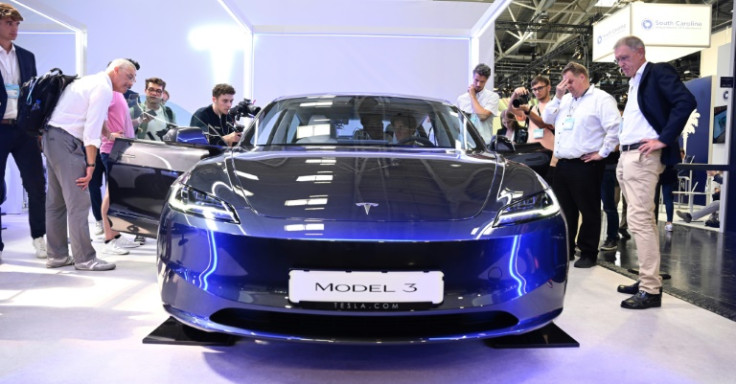Tesla's Price Cuts Will Bring EVs To The Masses - What Does It Mean For The Stock?

Tesla's precipitous price cuts on some of its models will bring electric vehicles (EVs) to the mass market, but it won't help its shares, which remain overvalued.
Once, EVs were the vehicles of choice for two small groups of consumers – "innovators" and "early adopters." These are younger, restless and curious consumers, always enchanted with the new and the exotic and the adventure new products like EVs bring to their lives, and they are willing to pay the high price tag attached to EVs.
Nowadays, interest in EVs spreads beyond the two small groups to the "early majority," a larger group of consumers who are critical to helping EVs cross the "tipping point" to reach the mass market.
The problem is that the early majority consists of older, more conservative consumers who are cautious and deliberate decision-makers, reluctant to pay the high price tag that comes with EVs.
"One of the most significant headwinds for this industry has been the price of the cars," Glenn Tompkins, senior global market strategist at VectorVest, told International Business Times. "It has been one of the biggest deterrents from people making the move to buy them."
Tesla has been trying to change that by cutting the price of some older EVs to make them more appealing to this consumer group and help the company increase its market share.
Young Pham, a financial planner and investment analyst with BizReport, thinks the decision by Tesla to cut costs and reduce the price of electric vehicles is a sound strategy.
"It positions the company as a more competitive player in the broader automotive industry," he told IBT.
"While Tesla has historically sought to distinguish itself as an EV pioneer with an emphasis on environmental sustainability, it's becoming evident that, like any other automaker, consumers place significant importance on pricing," Pham explained. "Therefore, lowering costs can help Tesla appeal to a broader audience, potentially leading to a more significant market share."
But Gary Black, managing partner at The Future Fund, is skeptical of Tesla's recent price cuts on existing models.
"Many TSLA bulls mistakenly interpret recent TSLA price cuts as consistent with the Tesla master plan of bringing out successively lower cost models to expand its total addressable market (TAM)," he told IBT. "Price cuts on existing models don't accelerate the world's transition to sustainable energy. The planned $25K next-gen vehicle (scheduled for first manufacture in 2025) does accomplish this."
Meanwhile, price cuts have a minor incremental volume growth effect while cutting into profit margins. Black points to FY 2023, when Tesla volume estimates dropped from 2.0 million in early 2023 to 1.8 million currently, and FY 2024, when the volume estimates dropped from 2.4 million to 2.2 million deliveries. In addition, auto gross margins ex-rev credits have dropped from a 30% peak in 2022/1Q to 16.3% in 2023/3Q."
Pham raises concerns about the impact of these cuts on the company's stock, which he finds overvalued.
"My long-standing perspective has been that Tesla's stock has been significantly overvalued," he explained. "There has been a prevalent belief on Wall Street that Tesla would enjoy an unchallenged position in the EV market and lead the revolution toward more sustainable vehicles. However, as major traditional automakers also enter the EV space, Tesla now faces substantial competition."
Pham believes competition makes the road ahead bumpy in Tesla's quest to dominate the EV market it pioneered.
"The competition is fierce, and established automakers have vast resources and expertise to invest in electric vehicles," he said. "While Tesla remains a key player, it is no longer the sole pioneer in the industry. As a result, I anticipate that Tesla's stock may start to gravitate toward its fair value in the coming years."
Pham thinks Tesla must balance growth and valuation.
"While increased sales of more affordable EVs could lead to higher revenues, the company's stock price may need to adjust to a more realistic valuation that accounts for the competitive landscape in the EV market," he added. "This doesn't necessarily imply a decline in the stock price, but rather a move toward a more reasonable valuation."
Tompkins strikes an optimistic tone.
"Tesla is a fundamentally sound company that will continue to thrive due to the high demand for EV," he said. "Tesla is a leader and will continue to be a leader. Like all companies, Tesla will have up and down periods, but they are not in danger of being knocked off the top, by any means."
© Copyright IBTimes 2025. All rights reserved.






















